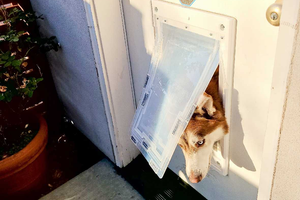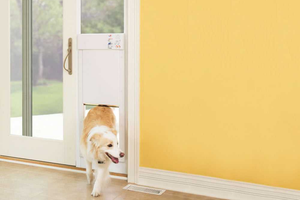Help With Choosing the Right Veterinarian
 Choosing a veterinarian is one of the most important decisions you will make for the health of your pet. You’ll want to choose a veterinary practice that you and your cat or dog both feel comfortable with at a practice that offers the highest available standard of pet care.
Choosing a veterinarian is one of the most important decisions you will make for the health of your pet. You’ll want to choose a veterinary practice that you and your cat or dog both feel comfortable with at a practice that offers the highest available standard of pet care.
As your pet’s guardian, you may be in the market for a new veterinarian if you have recently adopted the pet, moved to a new area, or you have questions about the quality of care your current vet is able to provide for your pet’s particular medical condition.
WHERE IS THE BEST PLACE TO START LOOKING?
Start your search for the right veterinarian by asking your friends, family, and co-workers about their choices in animal doctors. Most pet owners are glad to share their health care and vet clinic experiences and opinions when it comes to the care of their cats and dogs. Word of mouth is a great way to know how to find a veterinarian. Reach out to animal shelters, groomers, boarding kennel employees, or dog trainers for referrals.
Conduct a search online for “good vets near me” or “local veterinarian” or “animal hospitals.” You will be able to learn a great deal about the hours, location, and scope of practice and hopefully hear some good rapport on potential vet's offices. Many websites offer consumer reviews and detailed information about the practice, including whether it is a member of the American Animal Hospital Association, or AAHA. A membership in AAHA means the practice meets high national standards for veterinary care. Choose a practice relatively close to home.
Traveling long distances for veterinary care can be uncomfortable for both you and your pet, especially in emergencies or when your pet does not feel well. Look at the parking situation and consider how convenient it will be when transporting a sick pet into the building. Opt for a practice that keeps hours convenient to your schedule. Many cat and dog vets work evenings and weekends.
CONDUCT AN INTERVIEW
Make an appointment to speak with a vet before you bring in your cat or dog to get a feel for the practice and its employees. While in the waiting room:
• Note if the facilities are clean and well-organized
• Ask about the number of veterinarians on staff; request an introduction to other veterinarians in the practice who might care for your dog or cat
• Learn about the practice’s credentials, including whether it is AAHA-accredited
• Find out how the pets are cared for overnight
• Ask if dogs and cats are caged in separate areas
• Determine the cost of care and inquire about any discounts for senior citizens or households with multiple pets
The practice should have several friendly technicians and other staff members on hand to help care for your pet. Bring a list of questions to ask the veterinarian. As you ask the following questions, be aware of your rapport with the veterinarian to determine if he or she is a good fit for your pet’s needs:
• Does the practice use modern diagnostic tools and the most technically advanced methods?
• Do technicians perform tests in-house or does the pet have to travel elsewhere for x-rays, ultrasound, blood work, and EKGs?
• Are specialists on staff or do pets have to go elsewhere for specialized care?
• How do the doctors evaluate pets before giving anesthesia in surgical cases?
• What is the protocol for pain management?
You should feel comfortable with the veterinarian’s answers. Look for a veterinarian who takes time to answer your questions completely without making you feel rushed. Finally, take your dog or cat to the veterinarian and let your pet be the judge. Dogs and cats are excellent judges of character in most cases, and your pet will ultimately let you know if you have chosen the right veterinarian.



